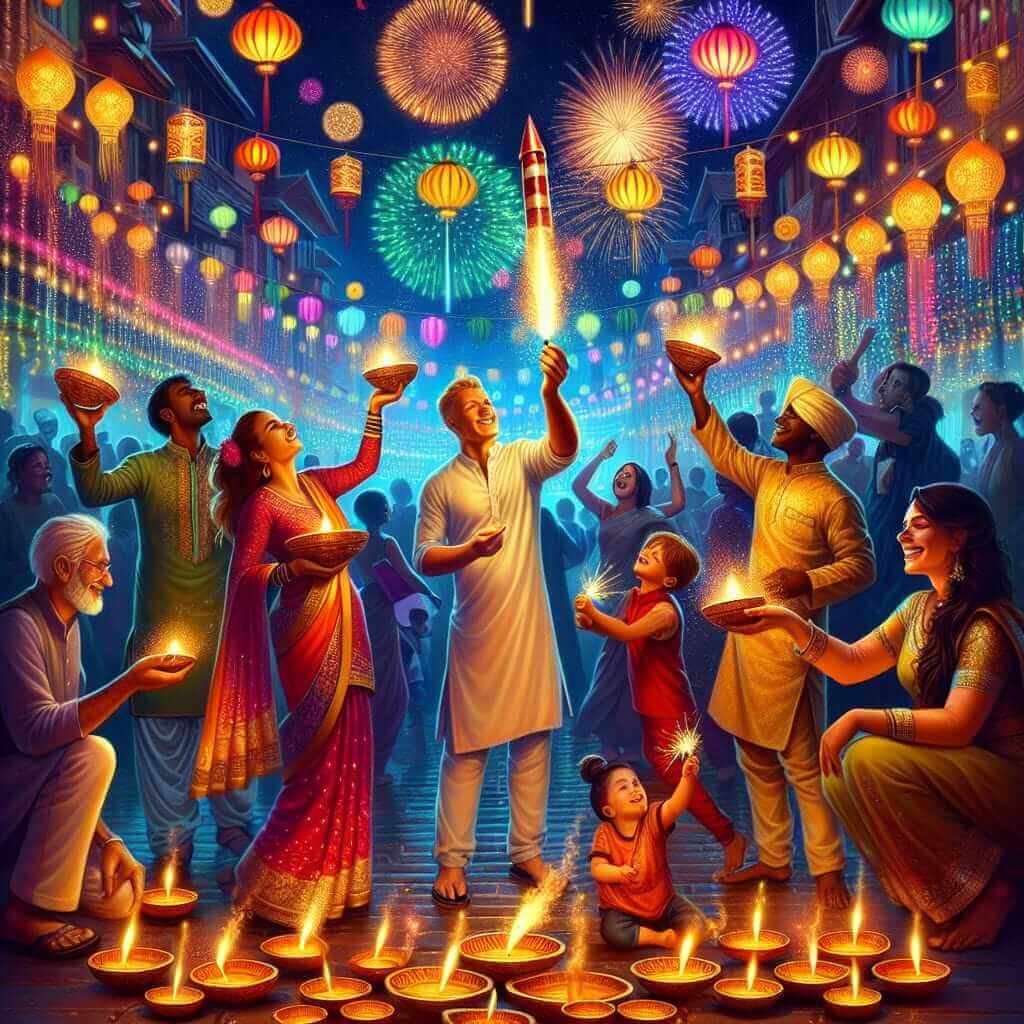The IELTS Speaking test is designed to assess your spoken English skills in a realistic and communicative way. Examiners look for fluency, coherence, lexical resource, grammatical range, and pronunciation. One common topic you might encounter is describing a time when you attended a religious event. This type of question is popular as it allows you to elaborate on personal experiences, showcase your descriptive skills, and demonstrate cultural awareness.
IELTS Speaking Part 1: Introduction and Interview
In Part 1, the examiner will ask general questions to help you settle in and get comfortable. These questions often relate to your background, interests, and daily activities.
Example Question and Suggested Answer
Q: Do you often attend religious events? Why or why not?
A:
“I don’t attend religious events very often. However, I do make it a point to go to the main ones like Christmas and Easter. These events are important not only for their religious significance but also for the opportunity they provide to spend quality time with family** and friends. Last Christmas, for instance, we had a lovely family gathering which was both spiritually uplifting and enjoyable.”
IELTS Speaking Part 2: Long Turn
In this part, the examiner will give you a cue card with a topic and some bullet points to guide your talk. You’ll have one minute to prepare and then you need to speak for up to two minutes.
Cue Card Example
Describe a time when you attended a religious event. You should say:
- What the event was
- Where it was held
- Who was there
- What happened during the event
- And explain how you felt about attending this event.
Suggested Answer
“A memorable religious event that I attended was a Diwali celebration last year. This festival, known as the Festival of Lights, is one of the most significant in Hindu culture. It was held at a local Hindu temple, an ornate and well-decorated place of worship, adorned with lights and flowers for the occasion.

There were hundreds of people, including members of the local Hindu community, friends, and family. The event started with a series of religious rituals and prayers, followed by a cultural program featuring traditional dances and songs. One of the highlights was the communal feast, where everyone shared delicious Indian delicacies and sweets.
Attending this event made me feel very happy and grateful. I was fascinated by the rich cultural traditions and felt honored to be a part of such a significant celebration. It also gave me the chance to learn more about Hindu customs and connect with others in the community. Looking back, it was an enriching experience that broadened my cultural horizons.”_
Possible Follow-up Questions
-
Do you think it is important to attend religious events and why?
- “I believe it is important because such events foster a sense of community and cultural awareness. They provide opportunities to understand and appreciate diverse traditions and beliefs, which is invaluable in our multicultural world.”
-
How do different generations in your family view religious events?
- “The older generations in my family, especially my grandparents, view religious events as vital for maintaining cultural heritage. In contrast, although the younger generation respects these traditions, they often prioritize other commitments over attending religious functions.”
IELTS Speaking Part 3: Two-way Discussion
In Part 3, the examiner will delve deeper into the topic, asking more abstract questions related to the Part 2 subject.
Example Discussion Questions and Suggested Answers
Q: How do religious events influence social behavior in your country?
A:
“Religious events play a crucial role in shaping social behavior in my country. They promote communal harmony and unity by bringing people together from various backgrounds to share in the celebration. During events like Eid, Diwali, or Christmas, people show more generosity and engage in acts of kindness, which strengthens social bonds.”
Q: Are there any drawbacks to attending religious events?
A:
“While religious events are mostly positive, there can be a few drawbacks. Sometimes, they may lead to traffic congestion and crowd-related issues, particularly in urban areas. Additionally, there is the potential for excluding those who do not share the same beliefs, creating a sense of division rather than unity.”
Key Vocabulary and Phrases for Higher Scores
To excel in the IELTS Speaking test, it’s crucial to use a variety of vocabulary and improved grammatical structures.
Vocabulary
-
Ornate
- Type: Adjective
- Pronunciation: /ɔːˈneɪt/
- Meaning: Intricately decorated
- Example: The temple was extremely ornate, adorned with beautiful carvings and lights.
-
Rituals
- Type: Noun
- Pronunciation: /ˈrɪtʃ.uː.əlz/
- Meaning: A sequence of activities involving gestures, words, actions, or objects, performed according to a set procedure.
- Example: The rituals performed during the event were very enlightening.
-
Communal
- Type: Adjective
- Pronunciation: /kəˈmjuː.nəl/
- Meaning: Shared by all members of a community; for common use.
- Example: We participated in a communal feast which was the highlight of the event.
Advanced Phrases
- Rich cultural traditions
- Usage: This phrase is excellent for enhancing the cultural context in your explanation.
- Broaden your horizons
- Usage: This idiomatic expression is ideal for describing the personal growth aspect.
Examiner’s Tips
- Practice regularly: Engage in daily speaking activities to build fluency and confidence.
- Use a variety of vocabulary: Try incorporating new and complex vocabulary into your practice responses.
- Be descriptive: Paint a vivid picture with your words to make your story engaging and compelling.
- Mind your grammar: Using different tenses and complex grammatical structures can improve your score.
- Seek feedback: Practice with someone who can provide constructive feedback to help you improve.
By understanding the structure of the IELTS Speaking test and practicing with these tips and examples, you’ll be well-equipped to excel in describing a time when you attended a religious event.